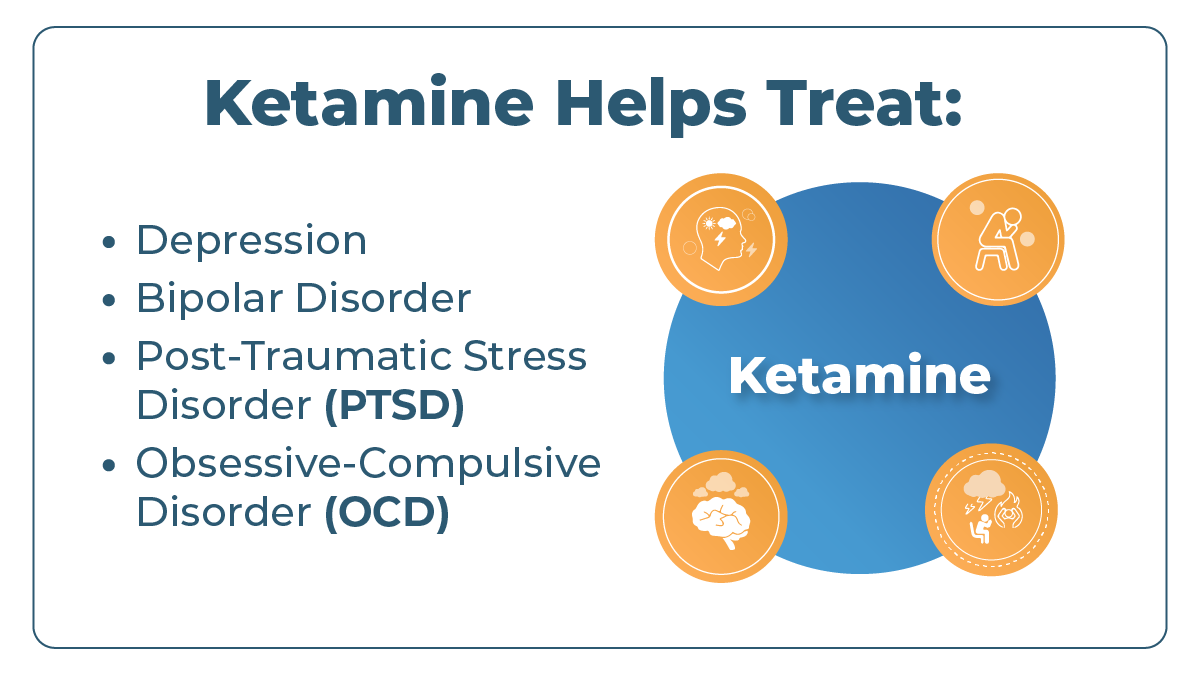Ketamine: Breakthrough Mental Health Treatment
Ketamine, originally an anesthetic, has emerged as a breakthrough in mental health treatment. Its unique impact provides rapid relief for severe depression, anxiety, and PTSD. Administered in controlled settings, low doses of ketamine have shown remarkable success, often when other treatments fail.
The drug’s quick onset and potential to reset neural pathways make it a favorable tool. Ongoing research explores its broader applications, offering hope for those seeking alternatives in mental health care. However, caution is vital due to potential side effects and its controlled substance classification.
Key Takeaways
Ketamine, originally an anesthetic, is used to treat various mental illnesses. Here’s what you need to know:
- This treatment works by influencing neural pathways and provides quick relief from symptoms of depression or anxiety.
- Ketamine treatment has five forms, and each has its benefits.
- Individuals will experience short-term and long-term effects, requiring medical care for successful treatment.
The Recovery Team is here to offer you treatment for a stable life. Call us today at (800) 817-1247 for more information.
How Ketamine Works for Mental Health
Ketamine, a medication gaining attention for mental health, acts on neurotransmitters like glutamate, impacting neurons. In ketamine therapy, a single dose triggers an initial blockade of NMDA receptors, prompting the release of other molecules. That likely affects mood by altering the amount of neurotransmitters, particularly glutamate.
By targeting the AMPA receptor, ketamine fosters the creation of new neural pathways. This process makes ketamine a valuable program in treating various mental health conditions. The modulation of NMDA receptors and the subsequent impact on glutamate levels contribute to ketamine’s effective treatment potential for people seeking alternatives in mental health care.
Ketamine Therapy in Mental Health Treatment
There are different formulations of ketamine treatment, including an intravenous (IV) infusion, intramuscular injection, nasal spray, and oral formulations. Here are some ways ketamine therapy can improve your mental health:
Depression
Traditional antidepressant medications may take weeks to months to show therapeutic effects. In contrast, ketamine has shown rapid antidepressant effects, often within hours to days. The exact mechanisms underlying ketamine’s antidepressant effects are not fully understood, but it is believed to involve modulation of the glutamate system, particularly the N-methyl-D-aspartate (NMDA) receptor.
Bipolar Disorder
In addressing bipolar disorder, ketamine plays a role in stabilizing mood swings. By influencing neurotransmitter levels, it helps regulate the oscillations between depressive and manic states, providing a unique avenue for managing this condition.
It’s important to emphasize that mental health professionals should monitor the use of ketamine in bipolar disorder. The effects of ketamine on mood and the potential for inducing manic or hypomanic states need to be weighed against its potential benefits.
Post-Traumatic Stress Disorder (PTSD)
Ketamine therapy proves beneficial in treating post-traumatic stress disorder (PTSD) by modulating neural circuits. During infusion sessions, it disrupts the persistent patterns of trauma-related thoughts and emotions, offering a potential breakthrough in mitigating the impact of post-traumatic stress disorder.
Obsessive-Compulsive Disorder (OCD)
In the realm of obsessive-compulsive disorder (OCD), ketamine’s versatility is evident. Ketamine presents an alternative treatment option. Its mechanism disrupts the neural pathways contributing to obsessive thoughts and compulsive behaviors, providing relief for individuals struggling with OCD.
Types of Ketamine Therapy
Administering ketamine for mental health involves various methods, each tailored to specific patient needs. As research continues to explore ketamine’s effectiveness and safety, its application in mental health is beneficial, particularly for those unresponsive to traditional antidepressants. Here are the forms of ketamine therapy:
- Intravenous (IV) ketamine infusions deliver the medication directly into the bloodstream, offering rapid relief.
- Oral ketamine involves taking the drug by mouth and is well-tolerated.
- Intramuscular (IM) ketamine injections offer an alternative injection route and are highly preferred by patients.
- Ketamine-assisted psychotherapy (KAP) combines the medication with therapeutic sessions to enhance its benefits.
- Nasal esketamine sprays, also known as Spravato, have received FDA approval for its effectiveness in treating depression symptoms.
Despite its effectiveness in treating mental illnesses, it is still under study for its long-term effects, emphasizing the importance of cautious use. These diverse administration methods highlight ketamine’s potential in addressing treatment-resistant depression and its role alongside talk therapies for a comprehensive mental health approach.
Candidates for Ketamine Therapy
When choosing patients for ketamine therapy, doctors look at various factors to ensure safety and effectiveness. The severity of their condition plays a crucial role in helping determine if ketamine therapy is the right fit. A thorough mental health assessment further guides the selection process, ensuring the best outcomes for patients seeking relief through ketamine therapy.
Previous Treatment Response
Understanding how a person responded to earlier treatments is key. This insight helps doctors tailor ketamine therapy to individual needs, improving the chances of success and providing a more individualized approach to mental health care.
Severity of Condition
The seriousness of a person’s condition is a vital factor in deciding if ketamine therapy is suitable. Doctors assess the extent of the condition to determine if ketamine can offer the necessary relief and support for improved mental health.
Overall Health Considerations
Taking a holistic approach, doctors consider overall health, including medical history such as heart problems and current well-being. This comprehensive evaluation ensures ketamine therapy aligns with the patient’s health profile, minimizing risks and optimizing benefits.
Mental Health Assessment
A careful assessment of mental health is conducted to gauge the suitability of ketamine therapy. That involves evaluating various aspects of a person’s mental well-being and providing a detailed understanding that guides the treatment selection process for the best possible outcomes.
What to Expect In Your First Ketamine Therapy Session
During a ketamine therapy session, you can expect a controlled and supervised environment, typically in a medical or therapeutic setting. A healthcare professional administers a carefully measured dose of ketamine, a dissociative anesthetic, often through intravenous infusion. The experience may induce altered states of consciousness, leading to introspection, vivid imagery, and altered perceptions.
The session typically lasts around 60-90 minutes, with the effects wearing off shortly after the infusion ends. Some people report a sense of dissociation or detachment from their surroundings. It’s common to have a therapist present to guide you through the experience and discuss any emotions or insights that arise.
Potential Side Effects
Patients, especially those with a history of suicidal thoughts, need careful monitoring during and after ketamine treatment. While ketamine has shown positive results in rapidly alleviating depressive symptoms, the emergence of suicidal ideation is a critical consideration.
Short-Term Side Effects
Ketamine infusion therapy may induce short-term side effects, such as drowsiness and changes in perception. Patients with major depression or post-traumatic stress disorder often experience alterations in their sense of time and space during treatment sessions.
Some may also encounter nausea or vomiting. Healthcare providers must communicate these potential side effects to patients beforehand, ensuring they are prepared for the immediate effects of the treatment.
Long-Term Side Effects
Long-term use of ketamine raises concerns about potential cognitive and memory issues. Patients undergoing extended ketamine treatment may also face challenges with concentration and attention. Additionally, there is a risk of developing tolerance to the antidepressant effects, requiring careful monitoring and potential adjustments to the treatment plan.
Overcoming Barriers and Future of Ketamine
Ketamine therapy holds promise for treating psychiatric disorders, but it faces barriers on its path to widespread use. Concerns about potential abuse and dependence raise questions about its long-term safety. Cost issues may limit accessibility, creating a challenge for those who could benefit.
Additionally, a lack of awareness about the therapy and persistent stereotypes surrounding it hinder its acceptance. Addressing these barriers is crucial for ketamine therapy to reach its full potential in the treatment of psychiatric disorders. As researchers delve into clinical trials, overcoming these obstacles will ensure that the benefits of ketamine therapy are accessible to those who need it.
Start a Healthy Life With The Recovery Team
Ketamine therapy for mental health is changing the lives of people with mental health disorders. If you or your loved one is looking for mental health services, then reach out to The Recovery Team. Our medical professionals offer counseling and therapy programs to support your mental health.
We offer ketamine treatment in a secure setting where our team of doctors evaluates and observes the patient’s dose of ketamine for recovery. We also provide talk therapies such as cognitive behavioral therapy (CBT) to help you break free from negative thoughts and learn healthy coping skills for effective recovery from mental illness.
Don’t lose hope. Find help today by calling us at (800) 817-1247.






